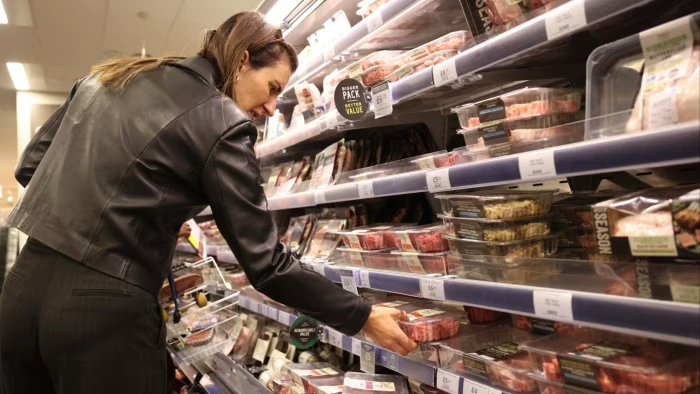London, Sept. 23 — Britain will suffer the highest inflation rate among the world’s richest democracies this year, according to a new forecast from the Organisation for Economic Co-operation and Development (OECD), intensifying concerns about the cost of living and the government’s economic strategy.
The Paris-based body said UK inflation will average 3.5% in 2025, outpacing all other G7 nations. While economic growth is expected to reach 1.4% this year — the second-fastest among advanced economies — the OECD warned that rising prices for food, utilities and business costs will continue to weigh heavily on households.
“Inflation in the UK has outpaced all our G7 peers this year,” the OECD noted. “That puts a heavy burden on households already stretched by energy and food costs.”
Families are still grappling with higher grocery bills, while employers face increased national insurance contributions and regulated price hikes for essentials. Analysts say real wages remain under strain, even as headline growth figures appear solid.
Susan Harper, an economist at King’s College London, said the report underscored a fragile recovery. “Yes, the UK is growing faster than Germany or France this year, but people don’t feel it because inflation keeps eroding disposable income,” she said.
Chancellor Rachel Reeves insisted the government was “making progress in stabilising the economy,” but admitted inflation remained stubbornly above the Bank of England’s 2% target.
Opposition parties seized on the OECD findings to accuse Labour of mismanaging the economy. Conservative Treasury spokesperson Jeremy Hunt said: “Britain has become the inflation capital of the G7. Working families are paying the price of Labour’s tax-and-spend policies.”
The OECD also warned that growth is likely to slow to around 1.0% in 2026, as higher borrowing costs, fiscal constraints and lingering price pressures take hold. Economists say the government faces a budget shortfall of more than £20 billion, raising expectations of fresh tax rises or spending cuts in Reeves’s November budget.
“The chancellor is boxed in,” said Harper. “Markets want fiscal discipline, households want relief, and businesses want investment incentives. You can’t deliver everything at once.”
The Bank of England is expected to tread carefully on interest rates, weighing the risk of prolonged inflation against pressures to cut borrowing costs for mortgage-holders and businesses.
For now, the OECD forecast has sharpened the political stakes, with inflation once again at the heart of Britain’s economic debate.

